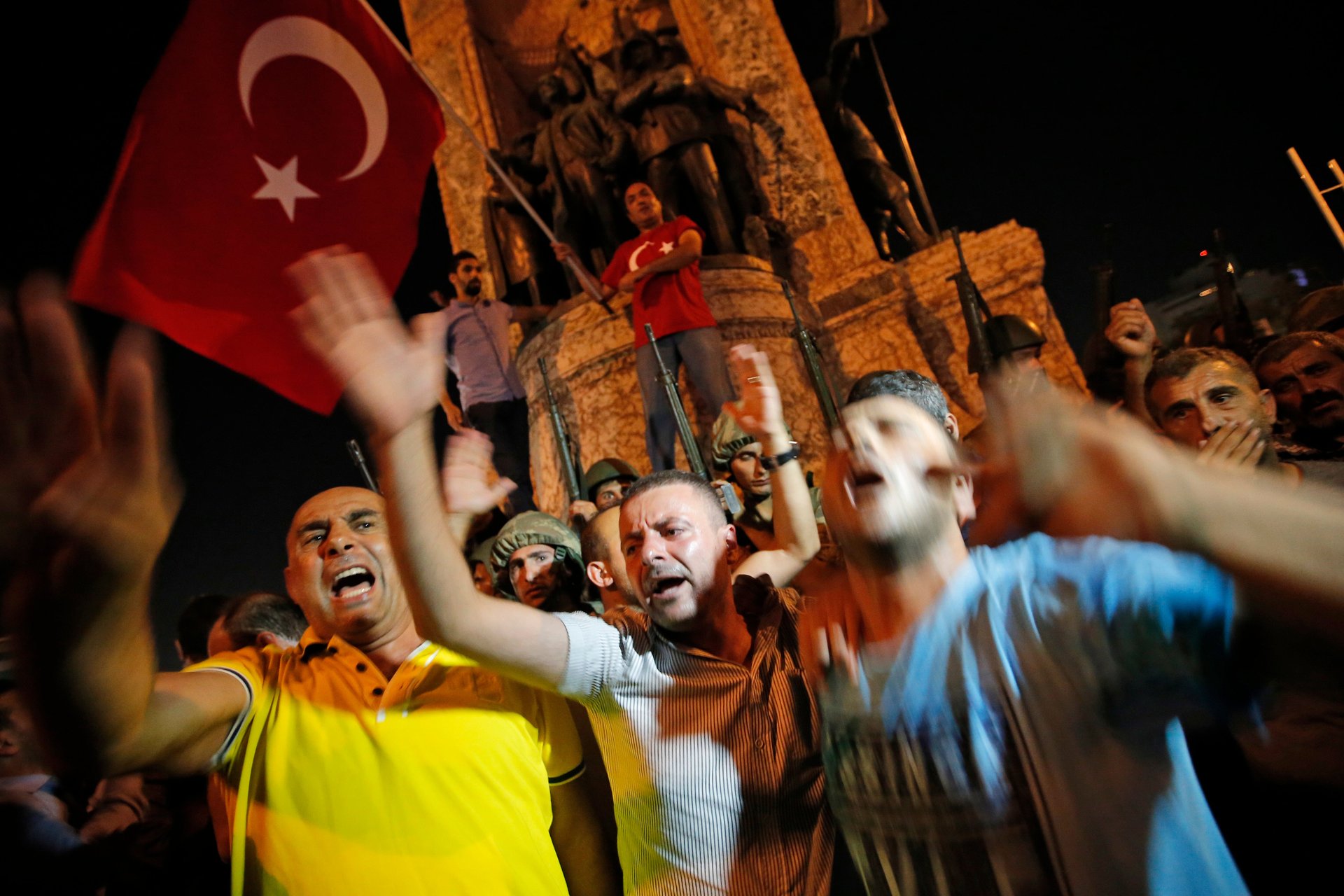There’s only one way to find out what really happened in Turkey
In the wake of a failed military overthrow of the Turkish government that began July 15, rumors are circulating in Turkey that the overnight struggle for power was actually a “fake coup.” By allowing a fake, ultimately unsuccessful coup, conspiracy-theorists reason, president Recep Tayyip Erdoğan could strengthen his believers’ faith that he needs to change the current presidential system into a more centralized presidency.


In the wake of a failed military overthrow of the Turkish government that began July 15, rumors are circulating in Turkey that the overnight struggle for power was actually a “fake coup.” By allowing a fake, ultimately unsuccessful coup, conspiracy-theorists reason, president Recep Tayyip Erdoğan could strengthen his believers’ faith that he needs to change the current presidential system into a more centralized presidency.
Others wonder if the coup was orchestrated to justify purging the military of Turks loyal to Fethullah Gulen, a suspicion fueled increasingly by recent mass arrests. Gulen, who has lived for years in Pennsylvania, is a spiritual leader for several million Turks, but an enemy of the ruling Justice and Development Party (Adalet ve Kalkınma Partisi, or AKP).
Fake or not, the coup has real fallout that deserves our focus now. At least 265 people have died, according to a government statement: 161 were police and regime supporters, and 104 were coup supporters. And as the government rounds up suspected conspirators, and reports emerge of vigilante justice exacted on soldiers, one pillar of Turkish democracy is under pressure: the rule of law.
“Rule of law” is a political science term for exercising power by following established, well-defined laws. This means following laws that are written narrowly and are thus difficult to misapply. The “established” part of the definition is means that laws cannot be implemented capriciously, but rather must be uniformly, carefully, and methodically implemented.
On the night of the attempted coup, Erdoğan called for supporters to take to the streets to show support for the nation. Many government supporters did go to the streets in peaceful protest—along with Turks who did not vote for the AKP, but simply opposed a military coup. One man who was in his thirties told me that he had gone to the airport Friday night not to welcome the President—as he did had voted neither for Erdogan nor the AKP for several elections—but to support civil government in Turkey.
This unity—similar to that shown by members of all political parties, who, Saturday in Parliament, stood together against the coup—is promising for Turkey’s future. It also shows that respect for the rule of law can unite citizens, even if they have differing ideological views.
But failure to respect the rule of law can have dire consequences. All day on July 16, reports and photos circulated on Twitter and on Turkish television relating instances of violent retribution by citizens against army soldiers. I talked with a fruit seller as he listened to unconfirmed news of a supposed vigilante beheading one soldier; according to the fruit seller, the soldier had gotten what he deserved for participating in the coup attempt.
Soldiers who participated in the attempted coup may face the death penalty, as there are calls to reinstate it. But all the soldiers must have trials, as the rule of law accords. Some have said that their commanders told them that they were participating in military training maneuvers, and did not know of the coup until they saw civilians climbing onto their tanks.
For these soldiers, and for anyone else who comes under scrutiny in the coming days, respecting the rule of law will be Turkey’s only real opportunity to find out the truth.